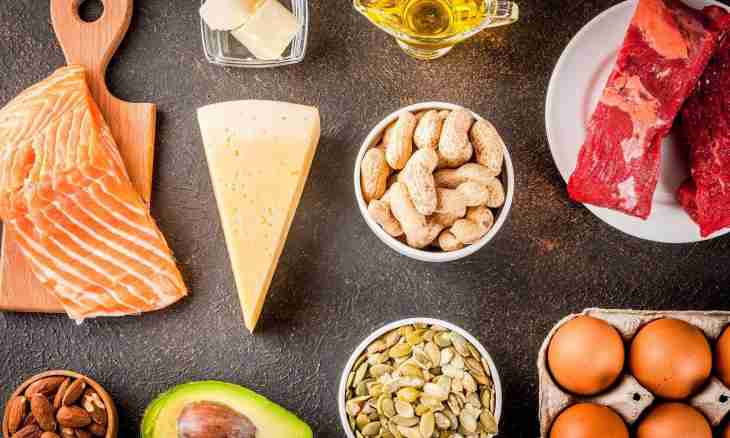Whether there is an advantage in fat-free products? Whether they help to lose weight? Or all this only tricks, and actually they not only don't bring benefit, but also harm an organism? Let's try to understand...
For a start let's understand at the expense of what degrease products?
Usually animal fats in milk, kefir, mayonnaise replace with soy - soy isolate and a soyameal are used. At the same time the nutritious structure of a product changes: proteins become more, and fat-soluble acids - less. The amount of cholesterol and saturated fatty acids decreases. As the consistence of a product suffers because of reduction of fats, in structure additives appear: various stabilizers and thickeners. Often they have no energy value and can be very useful to our organism as, for example, seaweed. But also starch which it is impossible to call useful (especially genetically modified) though its caloric content and is twice lower than fat is used.
Often animal fat is replaced vegetable: the most widespread case is a ""light"" mayonnaise. And, trans-fats in them don't contain (as well as in kachesvenny spreads), but there are useful polyunsaturated fatty acids.
All attention - on labels!
If you seek to lose weight, then the amount of fats needs really to be limited (but reasonably). Give preference to fat-free products. Judge for yourself: we will allow, you drink 3 glasses of milk a day. At product fat content in 3.5% it is 22 (!) g of fat, and at the fat content of 0.5% - only 3 g! And by scientists it is proved that in skim milk almost all useful substances remain. Of course, a number of vitamins will be lost, but producers care for it, enriching the product with them in addition. There are no data that they are acquired worse. What you won't tell about calcium... Unfortunately, calcium from milk below 1.5% fat is acquired worse therefore it is better to alternate products to the low and optimum content of fat.
And attentively read labels! Very often fat-free products contain excess of starches and sugars. Also happens that the producer specifies the incorrect fat content of a product therefore trust only the checked trademarks and farms. Also consider the emotional moment: often the person can touch calories for the reason that supposedly ""same a dietary product, so, it is possible to eat much!"".
How to achieve the best results from a low-in-fat diet?
On a low-in-fat diet the level of ""bad"" cholesterol decreases and the level of ""good"" increases. It leads to reduction of risk of atherosclerosis. But important not only to reduce fat content, but also to give preference to vegetable fats (oils) and cod-liver oil. These types of fats have to make 25% of the daily need for energy! The lack of fats leads, paradoxically, to increase in level of ""bad"" cholesterol and triglycerides in plasma. The tolerance to glucose decreases. Besides, the person becomes intuitively inclined to overeating of carbohydrates.
Imitate the Scandinavian diet (northern option Mediterranean) and also don't forget that without active sports activities business won't be argued!

